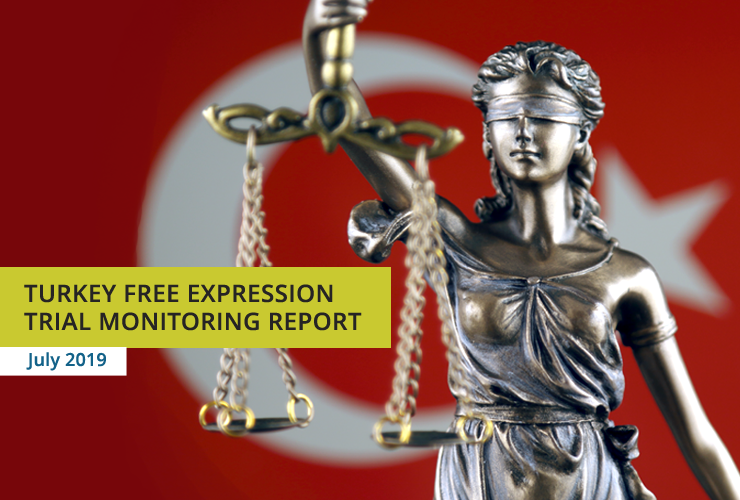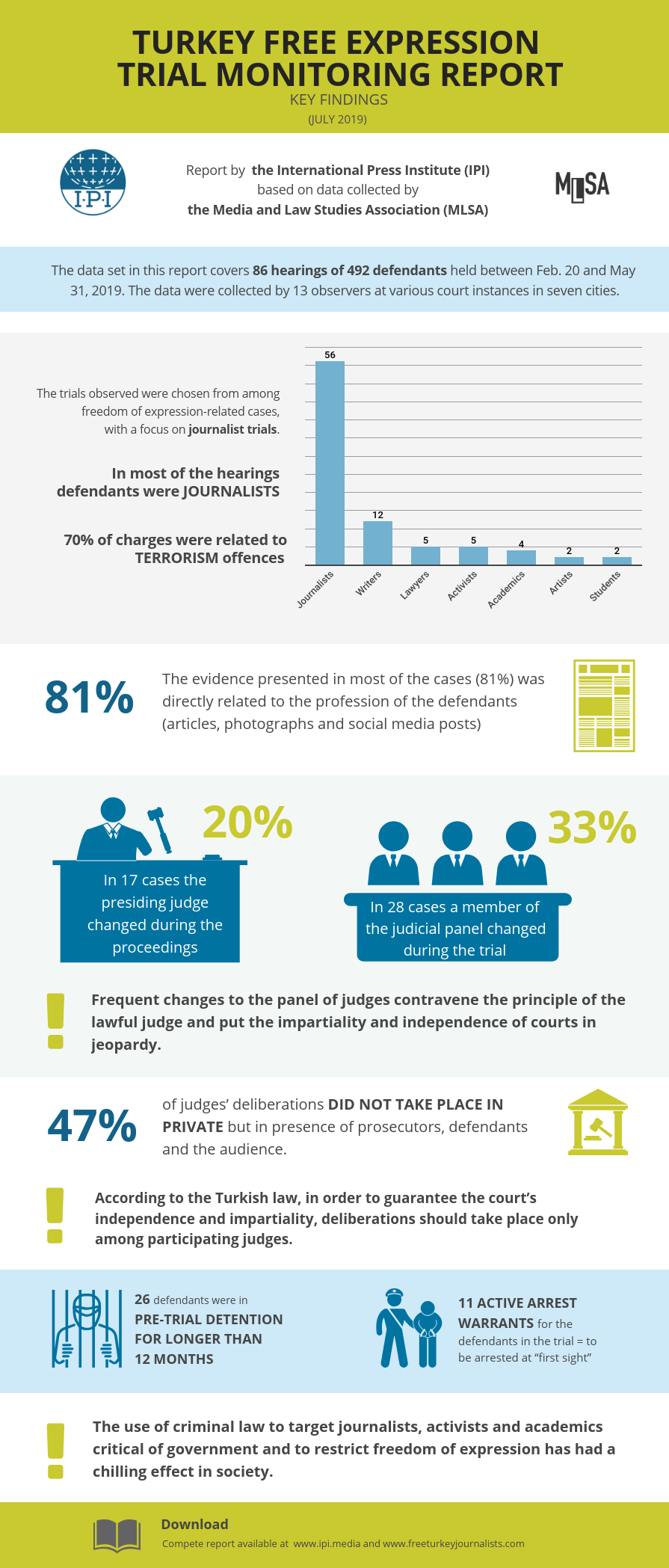The International Press Institute (IPI), in cooperation with the Media and Law Studies Association (MLSA), today published a new report analysing the extent to which Turkish courts protect the fundamental rights of journalists and others exercising their right to free expression.
The July 2019 Turkey Free Expression Trial Monitoring Report (the Report), written by IPI based on data collected by MLSA, forms part of a comprehensive trial monitoring programme across Turkey that began in June 2018. The Report covers 86 hearings involving 492 defendants held between February 20 and May 31, 2019.
In January, IPI and MLSA published initial results from the trial monitoring programme, finding that Turkish courts systematically ignored domestic and international standards set for securing the right to a fair trial. This July 2019 Report reaffirms those initial findings and shows no significant improvement in terms of courts’ protection of journalists’ rights.
Read the full report
Key findings
The data presented in the Report show that Turkey continues to criminally persecute journalists for their work. In all, 70 percent of the defendants are charged with terrorism-related offences. Yet despite the gravity of the accusations, indictments cite insufficient and untenable evidence: In 81 percent of the cases monitored in this period, the cited evidence directly related to defendants’ professional occupation, such as published articles, photographs or social media posts. Although the evidence does not support the charges, 40 defendants were held in pre-trial detention, 26 of them for longer than 12 months.
Moreover, the data suggest continued breaches of the right to a fair trial during court proceedings, including:
• The right to a lawful judge: In 20 percent of the cases the presiding judge and in 33 percent of the cases a member of the judicial panel changed during the proceedings;
• Secrecy of judicial deliberations: 47 percent of judges’ deliberations did not take place in private but were held in open court with prosecutors, defendants and the audience present; and
• In 52 percent of the hearings MLSA observers noted that the session was adversely affected by conditions of the court room, resulting in difficulties hearing (20 hearings) or lack of space for the audience (15 hearings).
These and other detailed findings suggest that the Turkish judicial system, including courts at various instances, continues to violate fundamental rights to liberty, freedom of expression and fair trial guaranteed in the Turkish Constitution, the European Convention and the jurisprudence of the ECtHR. The data collected reinforce the argument that Turkish courts are failing to provide an effective domestic remedy for rights violations, the exhaustion of which is a precondition for application to the ECtHR. Journalists and others targeted for exercising freedom of expression are therefore being denied effective protection of their rights.
Methodology
The methodology consists of trial monitoring, observation and reporting. MLSA oversees the implementation of the trial monitoring as well as the organization and preparation of the trial monitors. MLSA has recruited and trained more than 20 trial observers from various professional backgrounds including journalists, civil society professionals and students. In order to facilitate the work of the trial observers and produce a consistent set of objective data on observed trials, IPI and MLSA’s legal unit created an electronic trial monitoring template where observers can highlight and comment on the presence or absence of specific criteria in relation to the conduct of a fair trial.
Trial monitoring and data collection for this project are organized and carried out independently by MLSA. In a second step, the data provided by MLSA are analysed by IPI in periodic reports on trends and key findings for research and advocacy purposes.
Additional IPI trial monitoring reports will be published regularly over the course of the monitoring programme.



